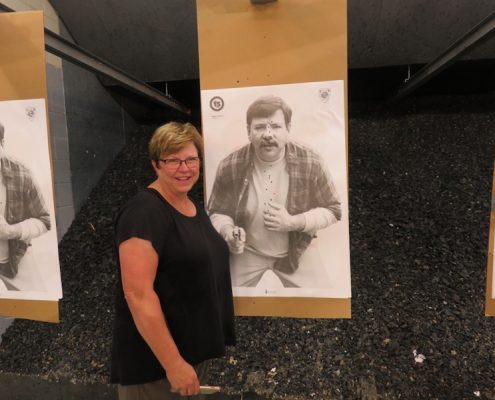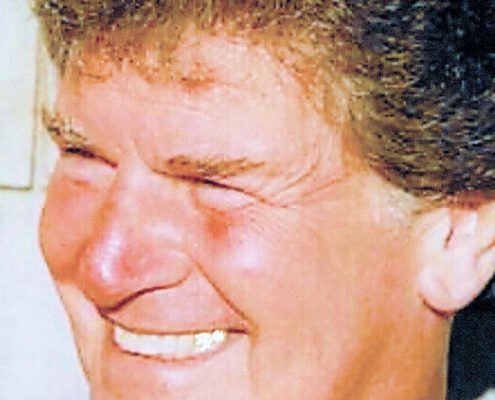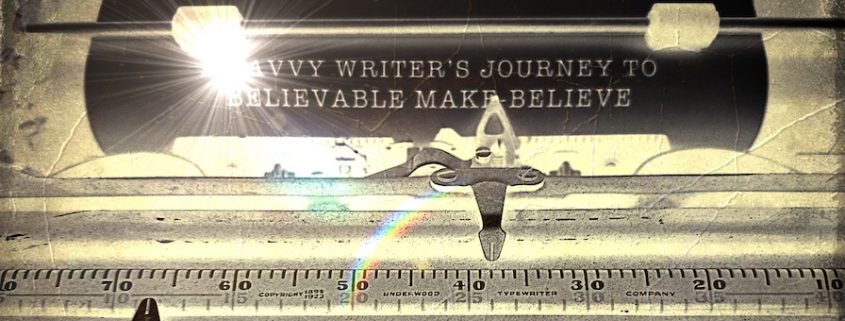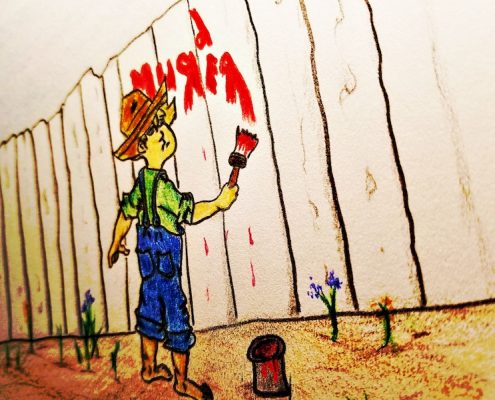Cops are a unique breed. They dress differently. They speak differently. They’re in a class all to themselves, and it’s a “Members Only” sort of group where those on the outside looking in often don’t understand what it is that officers do and why they do it.
Unfortunately, law enforcement is an operation that sometimes, to best protect us from harm, must do things out of public view. And that lack of understanding and wondering “what they’re up to” often leads to mistrust.
Some members of society reject any form of authority. Others distrust police officers because they’ve heard friends or family members say they don’t like cops. In some corners of cities, counties, and states, young children, even before they’re taught to read and write, are taught to hate the police. Then there are the bad apples of law enforcement who commit acts that go against the very meaning of their badge and oath.
Of course, compounding the trouble is the necessary secrecy involving some aspects of law enforcement, acts that can drive even larger wedges between the general population and the police. Therefore, over time, police officers metaphorically circled their protective wagons in order to survive in a world populated by people who simply don’t like them, for whatever reason(s). And, unfortunately, the circling of those wagons transformed the an already large wedge into a nearly impenetrable wall between citizens and the officers who’ve taken an oath to protect and serve them.
The wall is there. No doubt about it. But what many people don’t understand about the “wall” is that one of its cornerstones is fear—fear of abuse, fear of beatings, fear of racism, and even fear death. Yes, some people live their entire lives being deathly afraid of the police. Are those feelings justified? Sadly, in some cases, the answer is yes. But in most instances the answer is a definite and resounding NO. But, those bad apples in the barrel ruin things for everyone on both sides of the badge.
As a detective in charge of certain operations, I devoted much of my time attempting to tear down the invisible wall. I wanted people to know that police officers are human, and that we do good, and that we were there FOR them, not AGAINST them. And I still try to convey that message through this blog and through my writing. I also had the same goal in mind when starting the Writers’ Police Academy five years ago.
I knew the instructors at the WPA were the best in the business at what they do, but when I received the letter below, I also knew the event had achieved far more than helping writers “get it right.”
Finally, after all these years, there was a crack in the wall. And I want to say THANK YOU to everyone involved in the WPA for merely being you. It is because you’re who you are that someone took the time to let me know the WPA had a huge and emotional impact on their life. It’s almost overwhelming to think that the WPA actually impacted someone this way means a lot to me.
So here’s the letter (I’ve omitted names and locations to protect the writer’s identity, and, please, if you think you recognize the author of the letter, keep the name to yourself). The incidents mentioned in the letter occurred in New York City, but this could be said about any location in the country. And, by the way, I deeply appreciate the courage it took for this person, the author of the message, to attend the WPA and then to follow up with such a raw and emotional letter.
The Letter
Dear Mr. Lofland:
It’s been almost a year since I attended the Writer’s Police Academy in September of 201* and I am writing to share my experience during that weekend.
I learned about your Academy from a book on getting one’s book published (I don’t remember the title of the book) that I was skimming through in a Barnes and Noble store in early September of last year. Since I have no law enforcement background, I was looking for a way to verify that the information in the novel that I’ve been working on for some time is correct; that’s when I saw the piece on your Academy. I couldn’t believe it; especially since the Academy was being held in a few weeks. I quickly signed up and prepared to go along with my wife, my little daughter, and my mother-in-law.
The Writer’s Police Academy was a life-changing experience; but not in the way I imagined.
You see, I’ve never had a good relationship or opinion of the Police and I’ll explain why.
I was about 8 years old and it was a summer night in the mid 1970’s when suddenly I had a terrible cough just before going to bed. My mother is a praying woman and she taught us that when we’re sick God can heal us; so that night I asked her to pray for me. Quickly, the cough was gone and just before I dozed off into sleep I remember seeing the reflection of Police car lights on my bedroom wall.
The next day I awoke to find that my 16 year-old brother was missing. As my mother finished praying for me and I fell asleep, my mother saw the Police lights on the wall, too, and quickly ran to the window. Two policemen were surrounding my brother. What happened was that a car was stolen in my neighborhood and my brother was accused of being the person who stole the car.
My mother quickly ran downstairs and stood between my brother and the Police; the two men smelled of alcohol and their eyes were bloodshot. One Police officer pulled his weapon on my mother.
The owner of the car ran up to the officers and told them that his car was found by other officers and that my brother was innocent. One of the officers refused to let my brother go and wanted to take him in. My brother panicked and ran.
You see, we lived in the **** area of the **** and this was in the mid 70’s. Police abuse was rampant and crime and fires in the area were out of control. There was little trust in the Police from the community.
They shot at my brother as he ran down the park stairs and he was captured by other officers from three squad cars that suddenly appeared. They took him to the ******** and beat him to a pulp. My parents went to the precinct and were told he wasn’t there and had been released; it was a lie. Later on, the officers took him to an industrial area called *****, beat him some more and left him there in the middle of the night. My brother showed up at my house at 12 in the afternoon the next day.
Investigating officers reported that no such incident occurred and that one of the officers whom allegedly was present that night, whom my brother remembered his name and badge number, didn’t exist. An officer told my mother that she better get my brother out of the area or he would be killed by the police. She obliged.
Since then, my experiences with the Police haven’t been positive. There have been incidents in which I was treated well so I don’t want to over generalize but the bad has far outweighed the good. During the **** years, it was hell! I am of **** **** descent and although I am fair skinned, college educated and have worked all my life; I felt that I had a target on my back as I walked the streets or drove in the City. ….police brutality cases have only made me less trustful of the police. I have often wondered why I am even writing a novel related to the Police.
So, last year, when I went to your Academy, I was very uneasy. I was entering an actual Police Academy and was going to be surrounded by Police. I was nervous, apprehensive, and at times, felt like a hypocrite for even being there. But then the Academy started.
Friday morning began with a presentation on the Jaws of Life. The dedication and care for the public from the presenting officer just oozed out of him and impressed me. I then attended “Making a Lasting Impression” with Robert Skiff and David Pauly: I was blown away. The commitment from those two gentlemen to find the truth in order to protect the public blew me away. I slowly began to see that the Police weren’t necessarily out to get me but to protect me.
I then went to “Fingerprinting” and it was awesome. Next, I attended “Cold Cases and the Realities of Investigations” by David Pauly and Dr. Ramsland; this is where things really started to change. The openness of the presenters in sharing their knowledge was incredible. I could feel their passion and dedication to getting the truth and solving murders. More importantly, I could see and feel their humanity.
Friday evening after the Night Owl Presentation, I had to go to the Bar and gather myself. My head was spinning. Not only from the information I received in the classes but my emotions were everywhere. Then McMahan sat next to me in the bar and began to talk to me; my heart was racing and my palms were sweating. A law enforcement officer was sitting next to me and talking to me man-to-man. He is truly a gentleman. I found out he’s a dedicated dad and husband and I was humbled by his humility and integrity.
We were joined by David Pauly and Dr. Ramsland; they talked to me like I was a human being. You see, Mr. Lofland, in dealing with the Police in my past, I often felt less than human. David Pauly bought me a beer (please tell him I owe him one) and the four of us talked for a while. It was great. They are great people and their knowledge and dedication just blows me away.
Not long after that, Detective Conelli joined us and we had a brief talk; he was exhausted from his trip and needed rest. I couldn’t wait for his presentation on the following morning “Anatomy of an Undercover Cop”.
Saturday came and I was seated on the floor in Detective Conelli’s classroom (the room was full to capacity). He started out by showing a picture of “His Office” which was a building in the Grand Concourse in the Bronx. My heart stopped, I went cold, and I was almost brought to tears. I had been in many buildings like the one in the picture! He then showed us a picture of him while undercover. He had no weapons and was taking a huge risk in going into those buildings. It was during the Crack epidemic and I witnessed, firsthand, how it devastated neighborhoods.
Hearing Mr. Conelli talk transformed me. I began to see the other side of what it is to be a Police Officer. I began to see them as being on my side, for me, and not against me.
On Sunday, during the debriefing panel, I was struck by the Chief’s words and his assistant. I’m sorry but I don’t remember their names. They urged the writers present to write positively about the Police profession. They said it was very easy to portray cops in a negative light but we were witnesses that weekend to the goodness found among law enforcement professionals. I take that advice to heart.
On the plane on my way home I thought about my experience. I have a coworker whose brother is a **** Captain. I decided I would reach out to him in order to not only get information for my novel but most importantly, bury some painful experiences I had been carrying for many years. I realized that the experience with my brother had colored my view of Cops and I needed to change that.
Captain **** **** so happens to be the Captain of *** homicide. When we texted each other in order to set up a meeting, he told me he worked out of the ****! The same one in which my brother was abused. But the *** **** had since moved so I thought nothing of it. It turns out that the **** has indeed moved but the original building (in which my brother was abused) is used to house Captain **** and other administrative offices.
So, on a cold December night around 11pm I went to meet Captain ****. It was surreal walking into that building. I confessed my feelings about the Police to Captain **** and told him that if he felt uncomfortable with me that it was okay if he didn’t want to share and continue our meeting. He was very gracious and understanding. He confessed that the **** doesn’t have clean hands and didn’t have clean hands during those days in the 70’s in ***** but he shared his side of things.
I made peace with a lot of things that night, Mr. Lofland. It all started with your Academy and your gracious speakers. You have a very special thing going there. My mother would call it a ministry; something God-given.
My wish is that your Academy could be duplicated throughout the country and be used as a tool not only for writers but to bridge the gap between the Police and the communities in which they serve. I would like to see young people attend your Academies and receive healing just as I did.
I would also like to see you guys do a documentary on the Police. My vision is to have several Police recruits from several Police Academies from different parts of the country be followed from just before they enter the Police Academy to about five or more years into their careers. The documentary would show their everyday lives and their struggles and maturing process. I think the public would love it and gain a lot from such a program.
As for me, I don’t know if I will ever finish my novel or have it published. I am currently working on getting a Master’s of Social Work (MSW) so that I could work in the **** Schools helping kids in the inner city; kids much like me when I was younger. I can’t attend this year’s Academy because we can’t afford it and because of my studies.
However, I will forever be grateful to you and to Mr. McMahan, Mr. Skiff, Mr. Pauly, Det. Conelli, Dr. Ramsland, and all the others who were there last fall. I’m a better man for attending and am at peace now.
I am eternally grateful to you and to your partners. May you guys have the best Writers’ Police Academy yet and may God richly bless you and yours.
Thank you,
Name withheld



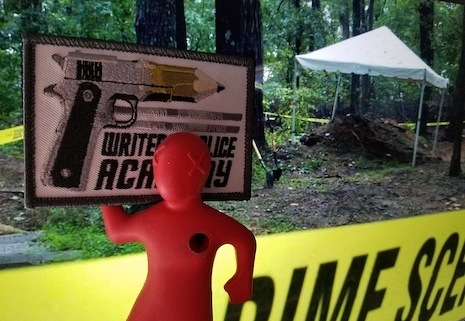

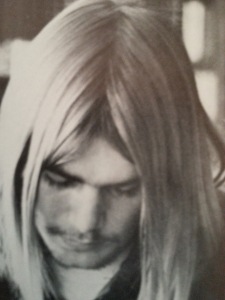
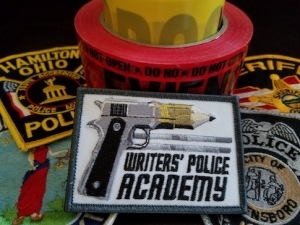
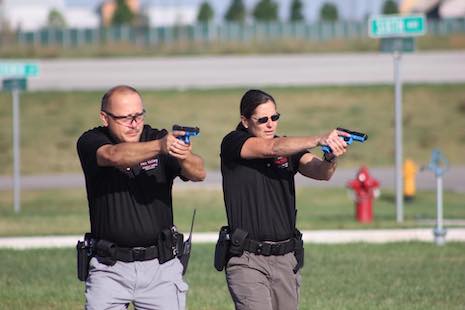
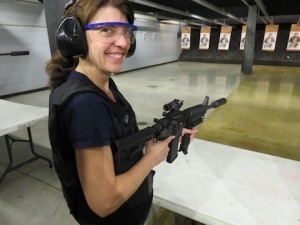


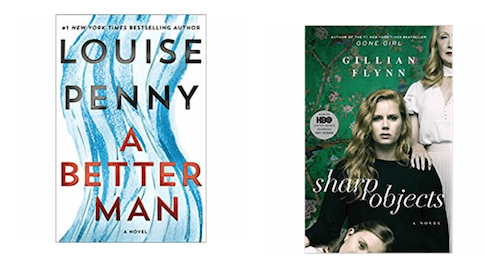
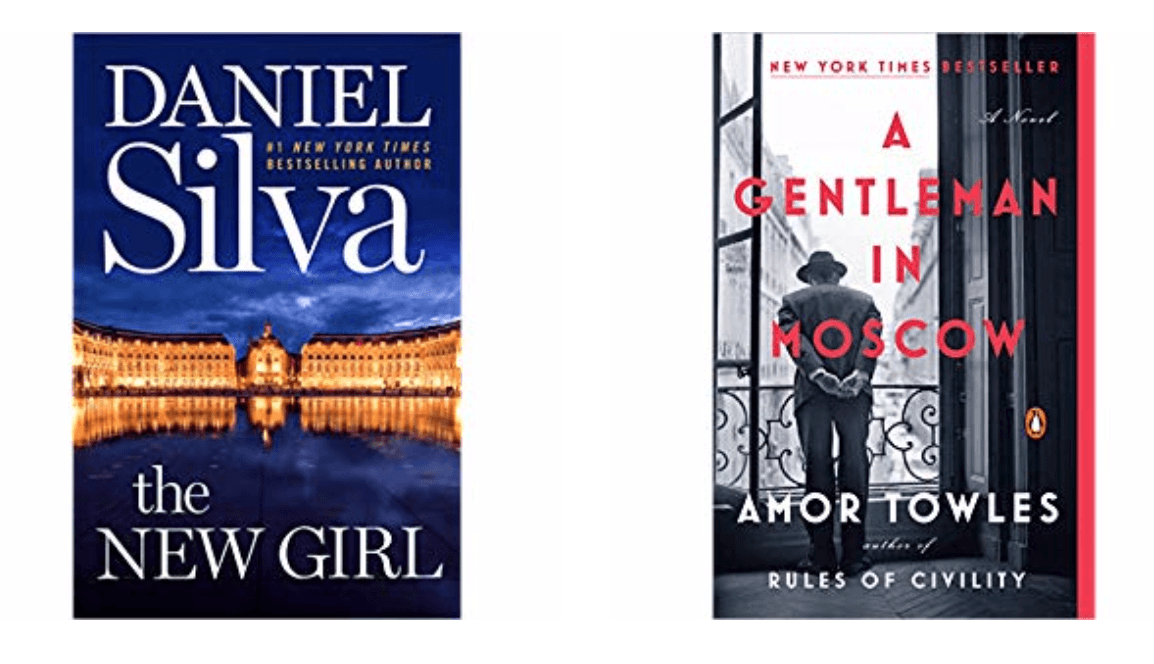
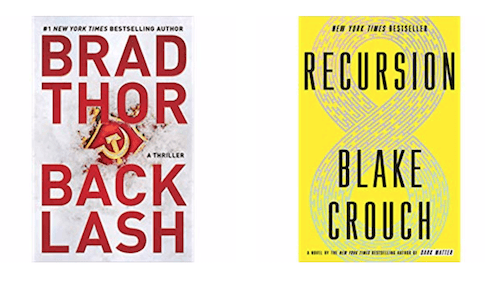
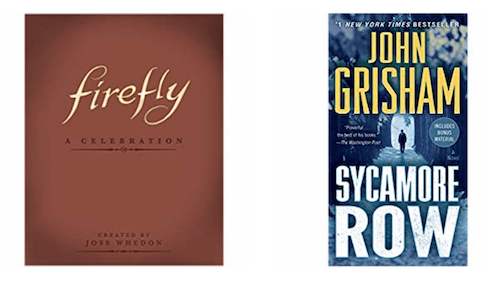
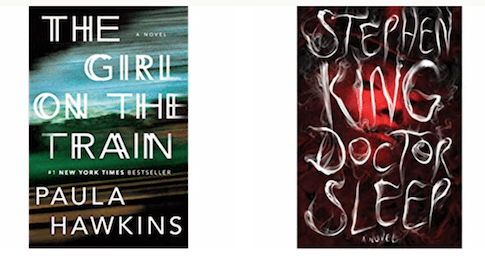
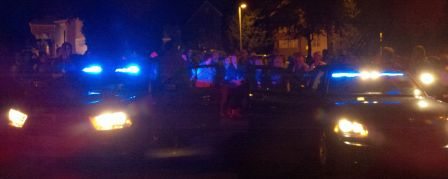

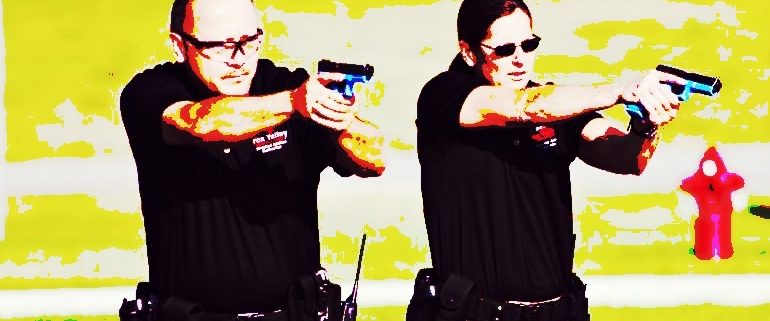
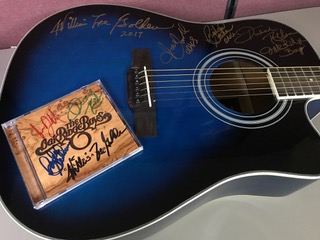 The prizes are unbelievable (a cool guitar signed by the Oak Ridge Boys, a PR package worth nearly $3,000, manuscript review by a top Harlequin editor, signed Murder, She Wrote Scripts (yes, actual scripts from the show),
The prizes are unbelievable (a cool guitar signed by the Oak Ridge Boys, a PR package worth nearly $3,000, manuscript review by a top Harlequin editor, signed Murder, She Wrote Scripts (yes, actual scripts from the show),
